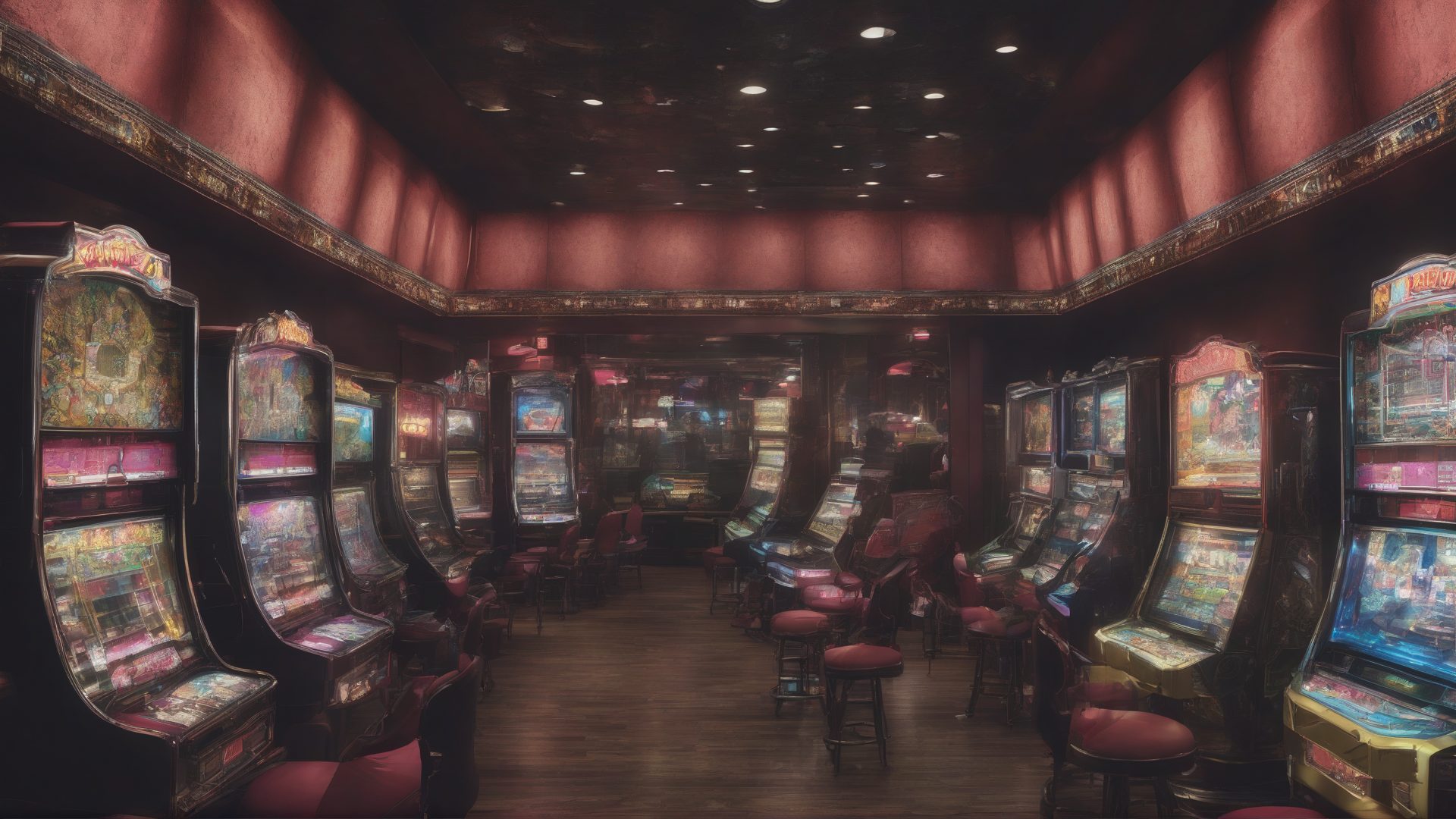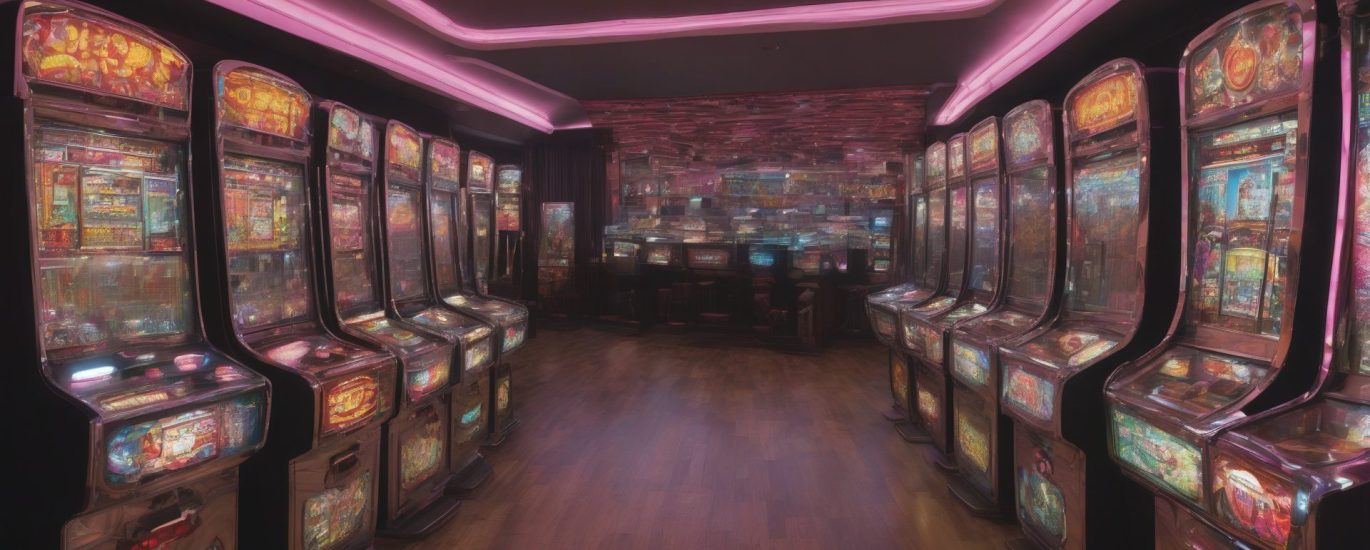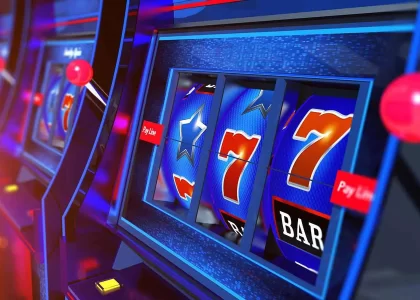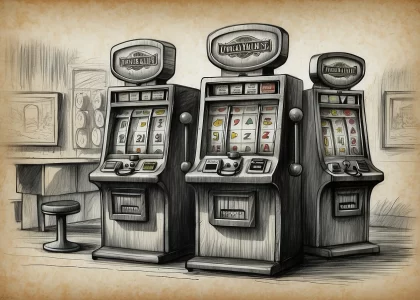Pachinko is a popular Japanese gambling game that combines elements of pinball and slot machines. Here’s a general overview of how Pachinko is played online.
Pachinko is a game of chance where players shoot small metal balls into a vertical pinball machine. The goal is to land the balls into certain pockets to win more balls or prizes. Online versions of Pachinko replicate this experience using digital simulations.
How Pachinko works
- Game Setup: Online Pachinko games typically feature a digital version of the Pachinko machine, with various pins, pockets, and obstacles.
- Gameplay: Players use controls to launch balls into the machine. The balls bounce around and interact with the pins, with the aim of landing in specific pockets to trigger rewards or bonuses.
- Winning: Landing balls in certain pockets or achieving specific patterns can result in winning more balls, which can be exchanged for virtual credits, prizes, or in-game features.
- Bonus: Mini-Games and Progressive Jackpots.
Game Setup
A Pachinko machine is a vertical pinball-like device with hundreds of small pins, a central plunger, and various pockets or slots at the bottom. Players use small metal balls, usually made of steel, which are the primary currency in the game.
Gameplay Mechanics
Players insert a number of metal balls into the machine. Using the central plunger (or lever), players launch the balls into the machine. The force with which the balls are launched can be adjusted to control their trajectory.
As the balls travel down through the machine, they bounce off pins and obstacles. The aim is to guide the balls into specific pockets or slots at the bottom of the machine.
Winnin and Rewards
Just like in the physical game, landing balls in specific pockets or achieving certain patterns can result in rewards. These might include additional credits, bonus rounds, or special in-game features.
Online Pachinko often features jackpots or bonus games that can significantly increase winnings.
Bonus Features
Online Pachinko games frequently include mini-games or bonus rounds that offer additional chances to win or enhance the gaming experience.
Some online versions include progressive jackpots that increase in value over time as more players participate.

Pachinko is primarily a game of chance. While players can influence the outcome to some extent, the game’s design is meant to ensure randomness.
Both traditional and online Pachinko have specific odds and payout structures. Understanding these can help players make informed decisions.
Pachinko’s blend of chance and excitement has made it a popular game in Japan and around the world. Whether in physical arcades or online platforms, the fundamental mechanics remain centered around the thrill of guiding balls through a maze of pins to win rewards.
Are Pachinko Game Machines Regarded as Gambling in Japan?
Pachinko operates in a unique legal gray area in Japan, where gambling laws are typically very strict. Unlike other forms of gambling, which are largely prohibited in the country, Pachinko does not technically fall under the definition of gambling. Here’s a breakdown of how it functions within Japan’s legal framework:
Legal Status of Pachinko in Japan
- Gambling Laws: Japan’s gambling laws are stringent, with very few exceptions. Most forms of gambling, like casinos, are illegal under the Criminal Code. However, Pachinko machines are treated differently.
- Not Classified as Gambling: Pachinko is not classified as a gambling activity under current Japanese laws. This is because Pachinko machines do not directly pay out cash winnings, which would otherwise classify them as a form of gambling.
How Pachinko Works Around Gambling Laws
- Prize Redemption System: Instead of direct cash payouts, players win metal balls that can be exchanged for vouchers or small prizes such as electronics or food items.
- Tokuten (Special Prize Exchange): The key to Pachinko’s legal standing is the “tokuten” system. Players can take their vouchers or prizes to a separate nearby establishment, where they can be discreetly exchanged for cash. While this system skirts the direct gambling regulations, it is widely practiced.
Regulatory Oversight
- Government Monitoring: Although Pachinko circumvents traditional gambling laws, the Japanese government is aware of the system, including the practice of exchanging winnings for money through third-party venues. The industry is closely monitored to ensure compliance with regulations.
- Age Restrictions: In Japan, only individuals over the age of 20 are allowed to enter Pachinko parlors, a rule strictly enforced to prevent underage play.
Social and Regulatory Concerns
- Potential Misuse: While Pachinko is designed to comply with the law, the industry has faced scrutiny for its resemblance to gambling. There are concerns about addiction and the social impact of the game, prompting the government to keep a close watch on how the industry operates.
- Future Regulations: As Japan moves towards the development of integrated resorts with legalized casino gambling, Pachinko may face increased regulation. Efforts are likely to focus on preventing the game from evolving into a more direct form of gambling.
In summary, Pachinko is a legally acceptable form of entertainment in Japan due to its indirect prize redemption system, but it exists within a carefully regulated space. The government continues to monitor the industry, balancing its popularity with the need to address potential social issues.
How Popular Are Pachinko Games?
Pachinko games are extremely popular in Japan, where they have become a significant part of the entertainment culture. Here are some insights into their popularity.
Pachinko is deeply ingrained in Japanese culture, much like slot machines are in the West. Many people, both young and old, visit Pachinko parlors regularly, making it a widely accepted form of leisure.
At the height of its popularity, there were around 12,000 Pachinko parlors across Japan. While the number has slightly declined in recent years, due to demographic shifts and increased entertainment options, Pachinko remains a prominent presence in cities and towns.
Pachinko is a multi-billion-dollar industry. In fact, the annual revenue generated by Pachinko is estimated to be more than that of Japan’s auto industry. It is believed to account for about 30 trillion yen ($270 billion USD) annually, making it one of Japan’s most profitable industries.
Pachinko parlors attract a wide demographic, from younger individuals seeking excitement to older players who enjoy the game’s social aspects. Although the average age of players is increasing, it remains a popular pastime for various age groups.
For many in Japan, Pachinko serves as a stress-relieving activity. It provides a fun and engaging way to pass the time, similar to playing video games or watching TV. The bright lights, sounds, and fast-paced nature of the game add to its allure.
While traditional Pachinko parlors remain popular, there has been a shift toward online and mobile Pachinko games. This digital transformation is appealing to a younger, tech-savvy generation, allowing them to enjoy the game without physically visiting parlors.
In recent years, there has been a slight decline in the popularity of Pachinko among younger generations. This is due to a combination of factors, including more entertainment options like video games, increased social awareness of gambling addiction, and changing cultural values. However, Pachinko is still very much a dominant force in the Japanese leisure industry.
Although Pachinko is most popular in Japan, it has attracted some international interest, particularly in Asia. There are efforts to introduce Pachinko-style games in other markets, although the cultural connection to the game remains strongest in Japan.
Despite some shifts in demographics and competition from other forms of entertainment, Pachinko continues to be one of Japan’s most popular and lucrative leisure activities. Its unique blend of gaming excitement, cultural acceptance, and the allure of winning prizes ensures its continued presence in Japanese society.
Are Pachinko Machines Legal in India?
Pachinko machines are not legal in India. India has strict gambling regulations, and most forms of gambling are heavily restricted or banned, except for a few exceptions like lotteries, horse racing, and some card games in designated casinos. Pachinko, being a gambling-like game, does not fall under these exceptions.
Pachinko involves the element of chance, much like slot machines or other betting games, which would classify it as gambling under Indian law. Since gambling is regulated at the state level, many states in India prohibit such games, making it illegal to operate or play Pachinko machines.
India does not have a specific legal framework that allows Pachinko machines or similar games. In contrast to Japan, where Pachinko is allowed under certain loopholes, India has not developed any exceptions or regulations for this type of game.
Even if Pachinko were offered online, it would still likely be considered illegal in India. Most Indian states also prohibit online gambling, making it risky to host or participate in such games through digital platforms.
Pachinko machines, due to their gambling-like nature, would not be allowed under India’s existing gambling laws. There are no legal loopholes or regulatory frameworks to accommodate Pachinko in India, making both physical and online versions of the game illegal.
Where can I play Pachinko Online?
Mr. Cat, if you’re looking to play Pachinko online, it’s important to understand that while Pachinko is widely available in Japan, playing it online can be a different story depending on your location. Here are a few options to explore.
Some Japanese websites offer online versions of Pachinko. These sites are primarily available in Japan, and they might require Japanese residency or specific methods for payout, as gambling laws in Japan are very particular.
Certain international online casinos may offer Pachinko as one of their game choices. These platforms might not be Japan-specific, but they could have Pachinko-inspired games.
There are free versions of Pachinko available on gaming platforms, such as mobile apps or web-based games. These versions do not involve real money but allow you to experience the gameplay for fun.
If you’re in a region where gambling is restricted (like India), you might consider using a VPN to access international online gaming sites. However, be careful with this approach, as it could breach local laws, and withdrawing real money could be difficult.
Be cautious about the legal restrictions in your region regarding online gambling. Ensure that any platform you use is secure and legitimate.
If you’re still keen on exploring Pachinko, start with free-to-play options to get a feel for the game before diving into real-money platforms.
A study estimates that 3.6% of Japan’s population is affected by a gambling disorder, with a notable increase among people in their 20s and 30s following the pandemic, according to a report by Asahi Shimbun in early 2024. This rise in problem gambling raises questions about the role of Pachinko in Japan’s gambling landscape.
While Pachinko operates under a sweepstakes model, where winnings are often exchanged for non-cash prizes, the game can still trigger addictive behaviors similar to other forms of gambling. Winning releases dopamine, creating a sense of euphoria and reinforcing the desire to keep playing.
However, Pachinko is not considered the main contributor to gambling addiction in Japan. Research suggests that most gambling addiction stems from illegal online gambling websites targeting Japanese players. Despite its somewhat lesser role, Pachinko still has the potential to be addictive, and those who play it should exercise caution.
It’s essential to recognize that while the game appears more benign compared to other forms of gambling, it can still have harmful effects if not approached responsibly.

























